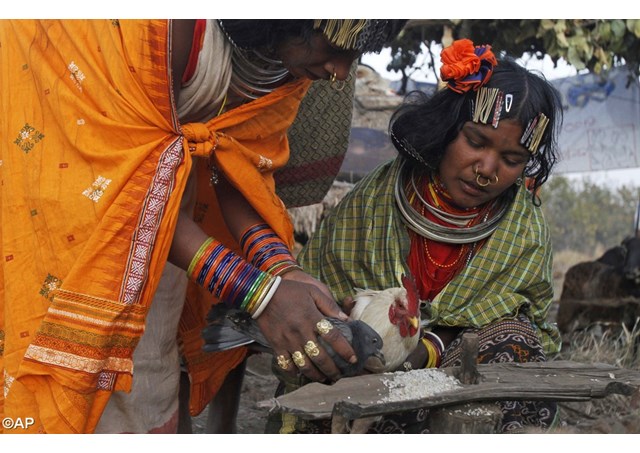
Odisha Catholic Church discusses mining, migration in state

Catholic Church leaders in eastern India’s Odisha state recently concluded a 2-day meeting in which they discussed how to meet the challenge of mining and related industries in the tribal areas of the state which continue to displace people, pushing them to poverty and migration. Bishop Niranjan Sual Singh of Sambalpur said it was "extremely important" for the Church to study the situation in order to "bring about peace, justice and dignity in society. He was speaking at the opening of the May 19-20 workshop in Jharsuguda, organized by the Office for Justice, Peace and Development of the Catholic Bishops’ Conference of India (CBCI), in collaboration with Odisha Forum, a voluntary organization. Some 60 people from various dioceses in the state took part in the event. Bishop Singh said that industrialists come to the mineral-rich tribal areas of Odisha under the pretext of development, but they are mainly responsible for hampering the development of the indigenous people. He said unrestrained mining has adverse effects on man, animals and plants, contributing to environmental degradation and pollution and forcing the indigenous to migrate from their natural habitats .
Dayamani Barla, tribal woman activist from Jharkhand state noted that Adivasis or indigenous people are profoundly tied to nature and the environment. When they are displaced in the name of development, their culture, history and identity gets exploited and destroyed.
Fr. Savari Raj, Director of Chetanalaya social service wing of Delhi Archdiocese, said displaced Advisasis, Dalit and minorities, often migrate or are trafficked to cities like New Delhi where often exploited, ill paid, sexually abused and don’t get proper healthcare.
Fr. Charles Irudayam, secretary of CBCI Office for Justice, Peace and Development, that organized the workshop, said the Church has the duty to protect human rights and to educate its members about the dignity, liberty and equality of all humans. Respect for human rights is the requisite for peace, he said.
Fr. Ajay Kumar Singh, director Odisha Forum, presented political environment impacting Tribal and Dalit in India. Religious minorities including Adivasi, Dalit, Muslim, Christian Dalit would form around 34 percentage of the population. "There is no single representative of these groups among Supreme Court and High Court Judges,” Fr. Singh said. (Source: Ucan/AsiaNews)
| All the contents on this site are copyrighted ©. |


